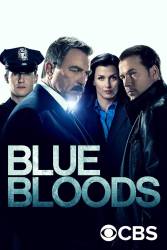
Question: What is the significance of the lapel pin worn by detectives on Blue Bloods?
Answer: It is an NYPD Detective Bureau lapel pin. If you zoom in on a pic of "Danny Reagan," you will see that the pin has the letters DB on it.
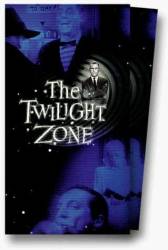
Question: When Becker is reading the list of indictments to Lutze, what were indictments four and five? Lutze was screaming so loudly I couldn't hear them.
Answer: #4: That he did personally murder at least 14 (Jews). The last word I couldn't quite hear because of the screams, but I hear an "-oz" sound at the end, so it's an educated guess. #5: That he did sign and put into effect specific orders calling for the gassing and cremating of one million human beings.
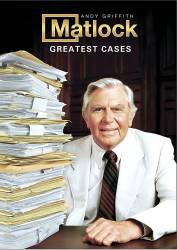
Question: A couple of scenes show Leanne at the beach. At the end, Ben in his usual suit, is walking on the beach, saying, "I thought I might find you here." If Ben has a practice in Atlanta, lives in an Atlanta suburb, isn't the beach a bit of a drive - about 2-3 hours from Atlanta? Of course, it's not impossible. I just don't see Ben or his daughter taking a quick jaunt to the beach.
Answer: Leanne often went to the beach whenever she was upset about something. In this episode, Leanne realised that Kevin, the guy she had been seeing, had broken into her home and taken her diary in hopes of learning everything about her. This upset her because her privacy had been invaded and Kevin thought that the entries in her diary described the kind of man she was looking for. Ben drove down to the beach to comfort Leanne.
Only problem with that is that earlier in the episode LeeAnn went for a jog on the beach. She drives three hours to jog?
She didn't go for a jog. She went there because she was upset.
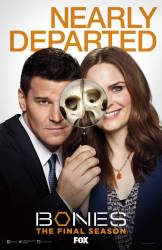
Question: When Doctor Brennan is examining the victim's skull, she states that a "straight suture across the palatine bone" indicates that the victim was a native Japanese speaker. I've studied linguistics, but I've never heard of a person's native language actually affecting their anatomy. So, for example: would a person of Japanese heritage who was born and raised in the US and spoke only English be distinguishable from a person who grew up in Japan and spoke only Japanese, purely by their palatine bones? (00:06:10)
Answer: Since the palatine bone is a bone that helps form the mouth it has a lot to do with speaking. The shape of it differs a lot depending on your ethnic background. I would guess that they, in the show, meant that the person's bone tells that they were Japanese and that it was "made for the purpose of speaking Japanese." That's what I'd assume anyway. I've studied molecular biology though, so I'm not an expert on bones.
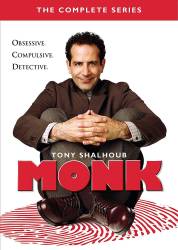
Question: If Monk is afraid of germs, then why does he keep touching things that could possibly have germs on them like parking meters or books?
Answer: Notice also that in the opening credits scene when he is touching parking meters her also wipes his hand on his clothes each time he does it.
Answer: That's the thing about Obsessive Compulsive Disorder. It's not something rational. He just has to touch things like that. It's not something he can rationally think through. However, since part of his disorder includes an obsession with cleanliness, he also has an assistant walk around handing him wipes periodically. It's like when he gets a cold and uses both a humidifier (because that's what you use when you're congested) and a dehumidifier (to counteract the effects of the humidifier). He may spout rationalizations after he does something, but his compulsions exist outside of any rational thought whatever.

Question: Why does Oliver Gates come up with ridiculous reasons for the people he defends whenever they commit murder? In the episode "Hate", Sean Webster was killing Muslims and Oliver claims that his hatred was genetic but, it was found out that Sean had been raised to hate Muslims after his dad left his mom and married a muslim. In the episode "Game" a guy is murdering people the exact same way that's done in a video game when it's clear the suspect is using the video game as a scapegoat for his crimes.
Answer: His clients are guilty and won't take a plea. He's using desperate defenses in hopes of swaying a juror or two. Also makes for better television. "Temporary insanity" isn't nearly as compelling as "the video games made me do it."
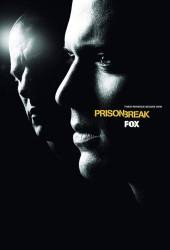
Question: How does Don Self know that Miriam should work at Gate when nobody knew about the location of Scylla? Or Whistler wanting to work there?
Answer: Don Self actually worked with Whistler before he died. And Whistler with the bird book actually knew where Scylla was.
Answer: Because Miriam was an agent.
But that still doesn't make sense because nobody knew where Scylla was.
He knew that GATE was mentioned in the bird book. He worked with Whistler and had probably discussed GATE with him, so it was clear enough that it was a big part of the plan to get Scylla. Sending an agent to work there in any position would've been a big help for intel, as she could assess the environment and perhaps uncover what Whistler's plan was. He didn't anticipate T-bag's hijacking of the plan, hence why he sent Miriam and not a more combat-trained agent. She was only there for information.
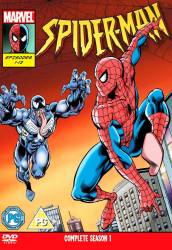
Question: Was the script for the sixth season written before this show was cancelled?
Answer: Yes. Many things that would have been in the sixth season would have had Norman Osborne returning from limbo and reclaiming the title of the Green Goblin, Richard Fisk, the son of "The Kingpin" Wilson Fisk would return as a crime lord known as "The Rose", Ghost Rider would have appeared to help Spider-Man stop Dormammu from returning to Earth and Madame Web and Spider-Man would rescue Mary Jane from limbo.
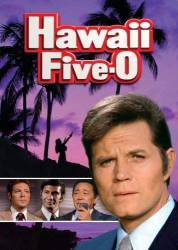
Question: Does anyone know why Zulu, who played Kono, left the show?
Answer: He was fired. He never really appreciated his character. He felt Kono was portrayed as a big dumb Hawaiian and that the stereotype was racist. He also felt underutilized. He was fired after a heated argument with the show's publicist regarding his character. It seems there's not much details given regarding the incident or the firing, so it's seems possible he upset the show's producers as well.
No he said something derogatory about one of the Jewish producers that's why he was fired.
Answer: He was asked to speak at a local organization event but the producer insisted that Jack Lord be also there. It was an event in honor of Hawaiians and that set him off. He used a derogatory name for the Jewish producer and that pretty much ended his stint on the show.
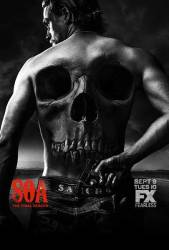
Question: Who were the original first 9 members?
Chosen answer: John Teller (Jax's father). "Piney" Winston (Opie's father). Lenny Janowitz. Keith McGee (President of the Belfast charter). Wally Grazer. Thomas Whitney. Chico Villanueva. Otto Moran (not to be confused with Big Otto Delaney with the eye-patch). "Clay" Marrow (though not a founding member).
Thank you.
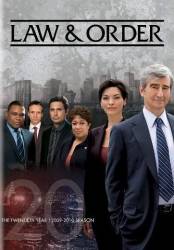
Question: Why did Arthur fire Serena?
Answer: He believed that she had become too empathetic towards the defendant they had been prosecuting, and that her actions were driven by her emotions instead of facts. While empathy is a good quality in general, a certain degree of detachment is required in order for a prosecutor to do one's job effectively.
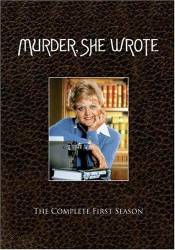
Question: Why did Lane Henderson (Louise's father) murder his wife?
Answer: In a flashback scene, it was shown that he had a violent temper, so it stands to reason that he finally killed her in a fit of rage.
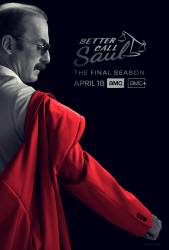
Question: Should I watch the entirety of Breaking Bad before I watch Better Call Saul?
Answer: It is my opinion that you should absolutely watch Breaking Bad first. If you did not know, Better Call Saul takes place before the events of Breaking Bad. At the time I am posting this, BCS is mid-way through season 5, with season 6 on the way perhaps in a year. So if you binge Better Call Saul now, you would not be able to "flow" right into Breaking Bad. To me, it's better to watch in the order that they came out. Breaking Bad was a phenomenal show, and now watching Better Call Saul, it is fun to watch the events unfold and start to lead up to what we saw in BB. Enjoy.
Answer: Now that it's ended, this question can be fully answered. Better Call Saul includes events after the conclusion of Breaking Bad, as well as references to and descriptions of major events from the latter. Not only would Breaking Bad be spoiled for you by watching Better Call Saul first, but there's a lot that wouldn't be understood.
Chosen answer: So far the show has been about Saul's struggles as a lawyer long before the Breaking Bad timeline (Spoiler Alert: It starts out for the most part at a time when he didn't even go by the name Saul).

Question: Can someone explain the subplot with the Margaritaville and Stan going to a bunch of places trying to return it? It's really confusing. And this sounds stupid, but in a recession, wouldn't spending money be bad?
Answer: Essentially Stan was trying to return the blender that his dad, Randy, had bought because he knew his parents couldn't afford the extra debt. The blender, which represented mortgage-backed securities, had been bought on payment plan, meaning Randy had to make monthly payments, with interest, on something that wasn't essential. The episode represented the recession that was occurring at the time, including the housing bubble and mortgage crisis going on, so there's a lot going on. However, the payment plan (which is to say the debt) had been sold to another company by the store that sold Randy the blender. (To explain why, because of the recession, the store needed cash on hand, and they would only be getting a little money each month, if Randy paid his bill. So the store sells the debt to a company who gives the store the money upfront. Think of the J.G. Wentworth commercials, "I have a structured settlement, but I need cash now".) Because the store sold the debt, in ridiculous fashion, Stan had to return the blender to the company that bought the debt, although they too sold the debt to another company. Finally he gets to the U.S. treasury who tells him his blender is worth $90 trillion (again a ridiculous exaggeration) meaning that the debt owed is greater than the product is worth and to deride the way government agencies set up their budgets (which requires much more complex economic lessons). Kyle's whole point was people shouldn't fear the economy or see it as a vengeful being, but continue to spend and live as they normally do. Economically speaking, not spending money during a recession creates a longer lasting recession, and to solve a recession, people should spend money, although people and businesses shouldn't acquire debt during a recession because interest rates are higher. But on a personal level, individuals are fearful of losing their jobs during a recession, so they save money in case that should happen. But again, this is complex economics lesson.
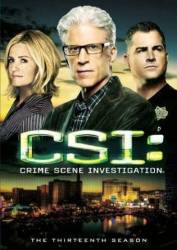
Question: Is there an episode in which someone gets impaled by an icicle? I seem to recall the team not being able to find the murder weapon, and then someone realized that it had melted. This could also be CSI: New York.
Answer: The episode on CSI:NY was called "Love Runs Cold" and first aired on October 4, 2006 (Season 3, Episode 3) and involves the investigation of a model found stabbed to death by an ice dagger.
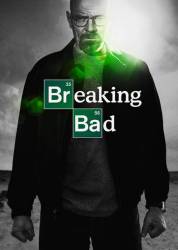
Question: When Saul buys Jesse's house from his parents, he said that he showed their lawyer, Mr. Gardner, "all the pertinent financials", meaning $875,000 in cash available to buy the house. Jesse only had $450,000 and that money was not in any account. How did Saul show Mr. Gardner that he had $875,000 in cash?
Answer: Saul is a criminal himself. It's not past his capabilities to forge some documents to show the 857k is available.
Forged documents by Saul is most likely the correct answer.
Answer: In all likelihood, he sold some more meth.
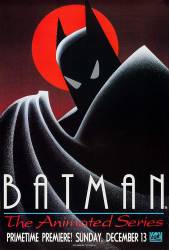
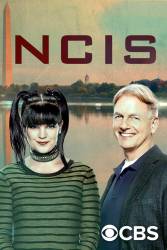
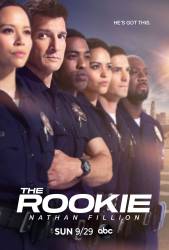
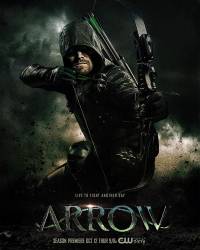
Answer: It is the lapel pin worn by members of the NYPD Honor Legion.
The lapel pin is on Danny but not Biaz, why? Also, Baker, Sid, Frank &Garrett wear one. Significance? Are they all the same?
Is the P.C.'s pin different than a legion pin? What are the symbols and their meaning?
I think it may be Masonic?
But why would the mayor wear one?